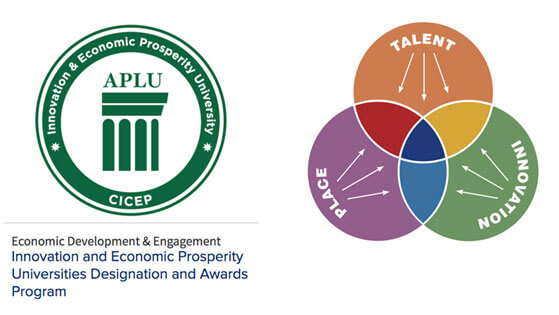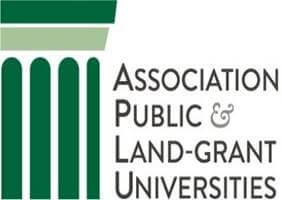EAGER: Defining, Measuring and Advancing University Economic Engagement: A Research Initiative for moving forward Science and Innovation Policy

Overview:
While universities have been committed to, and engaged in, realizing economic impact since the establishment of the nation’s land-grant universities in the middle of the nineteenth century, university “economic engagement” is in many ways still an emerging field. A better understanding of how university practices in this arena are forming will provide a foundation for gaining insight into the economic impact of university research and teaching. The Association of Public and Land-grant Universities (APLU), since 2012, has offered a voluntary designation program to member institutions. The program has amassed, in 55 successful applications, over 2,500 pages of rich, descriptive information about the structures, processes, and outputs of university economic engagement. This corpus represents an invaluable qualitative and quantitative research dataset upon which a robust research agenda can be built. We propose to undertake an effort to unleash the potential of the IEP Universities corpus.
The Goals of this project are: (1) make the IEP University data readily accessible to researchers by converting the IEP University collection of application documents into a coherent, well-structured dataset that is easy to access and conducive to further qualitative and quantitative research explorations; (2) identify broad data trends and insights that can be used to setup follow-on research; and (3) identify types of metrics used by universities.
Methods: Given the nature of our corpus, we will use mainly a qualitative research methodology, in particular methods appropriate for examining innovation and technology-based economic development. For the quantitative sections we will use statistics and data visualization.
Expected outcomes: (1) the IEP University dataset consisting of (a) entire IEP University corpus coded using qualitative research methods; (b) a dataset containing all economic engagement indicators and metrics used by universities; and (c) quantitative database of data extracted from the entire corpus; (2) a comprehensive document describing (a) data trends, insights and list of potential follow-on research questions; and (b) the codebook for all qualitative coding performed.
Defining, measuring and advancing university economic engagement is a potentially transformative research initiative for moving forward science and innovation policy that will result in a wide-range of regional and national societal benefits. Research universities are vital components of innovation ecosystems at the local, regional and the national levels. Innovation ecosystems are widely-acknowledged engines of innovation-driven economic growth that result in high-paying high-technology jobs, vibrant communities, fertile environments for technology startups, societal wellbeing in terms of economic prosperity and quality of life, and the economic and national security of the United States. As a result, the proposed data-centric effort for a better understanding of university engagement with their local, regional and national ecosystems is a crucial endeavor that could lead to transformational changes in the way universities engage with their communities to advance science and innovation.
Principal Investigators:
- Drs. Ivan Garibay
- Ozlem Garibay
- James Woodell
- Elizabeth Austic
- Lawrence Molnar
- Zhara Rawahi
- Heather Keathley
- Duane Dunlap
Partners:
University of Central Florida
Association of Public and Land-Grant Universities
University of Michigan
Purdue University
Sponsors:
National Science Foundation






